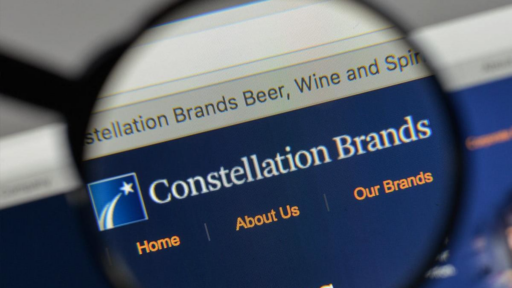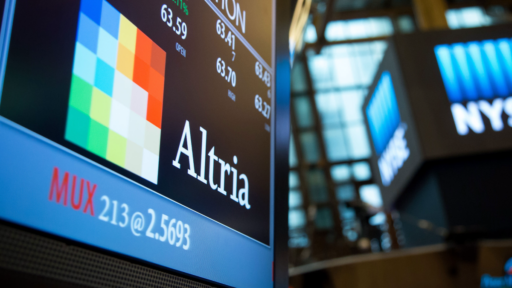Best Sin Stocks in 2024
If you want to invest as an expat or high-net-worth individual, which is what i specialize in, you can email me (advice@adamfayed.com) or use WhatsApp (+44-7393-450-837).
Introduction
Any company’s stock involved with a product or service considered immoral or unethical is said as a “Sin Stock”.
In layman’s terms, these are the companies that profit from the activities that are said to be a person’s weakness/addiction.
In general, sectors categorized as sin stocks typically comprise industries associated with:
- Alcohol
- Tobacco
- Cannabis
- Gambling
- Adult entertainment
- Weapons manufacturing
Nevertheless, the classification of sin stocks can be based on or influenced by regional and societal norms that vary globally.
For example, brewing has a deep-rooted tradition in many regions, so not everyone considers alcohol stocks as sinful investments.
Additionally, political beliefs can impact whether an industry is deemed a sin stock.
Some include all military contractors on their list of sin stocks, while others view supporting the military as a patriotic duty.
Sin stocks stand are opposite of ethical and socially responsible investing.
ESG (Environmental, Social, and Governance) investing aims to promote investments that benefit society as a whole.
It’s challenging to classify sin stocks as their categorization depends on investors’ sentiments toward particular industries.
Anyhow, tobacco companies like Phillip Morris and alcohol producers like Anheuser-Busch frequently fall under the sin stock lists.
Furthermore, many gambling stocks are linked to hotel businesses like Caesars Entertainment Corporation or Las Vegas Sands Corp.
This scenario makes it complex to separate the “sinful” aspects of some enterprises.
Advantages of Sin Stocks
Investing in sin stocks can be profitable because these companies have steady customers.
Their demand remains stable even during economic uncertainties, making them less vulnerable to economic downturns.
Also, factors like regulations and social stigma can keep new competitors away, protecting sin stocks.
These barriers lead to good profits and stable earnings for sin stocks.
Some studies suggest that because sin stocks have a bad reputation, they may be undervalued.
This makes them attractive to investors willing to take a chance.
Many big sin stocks have a history of creating value for shareholders over the long term.
However, whether something is a “sin” largely depends on individual values.
Drawbacks of Sin Stocks
Sin stocks have risks too.
They can face political and financial problems, just like other stocks.
Some sin businesses might have a higher risk of failing, but the bigger issue is facing moral criticism or potential shutdown.
If the public views an industry as immoral, it can lead to calls for it to be banned.
For instance, the United States had periods of alcohol and drug prohibition in the 20th century.
This would have been strange in the 18th century.
In the 19th century, the link between alcohol, drugs, and various crimes paved the way for these bans.
Even if sin stocks are not banned, they could be hit with sin taxes.
Sin stocks are more likely to be taxed due to political and economic reasons.
Politically, some people who generally dislike taxes might support taxes on behaviors they see as immoral.
Economically, sin taxes lead to higher taxes on sin stocks. When things are taxed, some people use them less because of the tax.
This reduced use can hurt those who would have bought the product or service and can be bad for society.
However, some argue that taxing harmful products like tobacco benefits the community by promoting public health and reducing healthcare expenses.
Now that we’ve discussed the general landscape, let’s look at some top sin stocks.
Best Sin Stocks
Disclaimer: Note that the information provided in this article is only for informational purposes and should not be considered investment advice.
Stock prices, analyst ratings, projected earnings, etc., are consistently subject to change, therefore due diligence is required.
It is always wise to take advice from a financial expert before you start investing so that you can have better returns.
Anheuser-Busch Inbev SA (NYSE: BUD)
Price: $53.43 (12 October 2023)
Analyst Rating: Hold
Projected Earnings Rate: 18.48%
Market Cap: $98.82 billion
Buy or Sell?
In the past year, eight Wall Street analysts have provided ratings for Anheuser-Busch InBev SA/NV stock.
The ratings comprised two suggesting “sell,” one recommending “hold,” and five endorsing “buy.”
The consensus view among these analysts is to “hold” BUD shares.
Performance in 2023
In 2023, BUD shares initially traded at $60.04 but have since decreased by 10.1%, currently standing at $53.96.
Dividends
The company declared an annual dividend on April 12th, with a dividend of $0.611 per share for investors of record on May 4th.
This results in a dividend yield of 0.95%, and the ex-dividend date is May 3rd.
This represents a positive change from the company’s previous annual dividend of $0.41.
Anheuser-Busch InBev SA/NV (NYSE: BUD) currently pays an annual dividend of $0.61 per share, with a dividend yield of 1.16%.
Although the company hasn’t shown a strong history of dividend growth, the dividend payout ratio is 19.68%.
This indicates that the dividend payout ratio is at a sustainable level, well below 75%.
Based on earnings estimates, the expected dividend payout ratio for BUD next year is 16.99%.
British American Tobacco PLC (NYSE: BTI)
Price: $30.08 (12 October 2023)
Analyst Rating: Hold
Projected Earnings Rate: 3.92% %
Market Cap: $60.64 billion
Buy or Sell?
Over the past year, British American Tobacco has received ratings from four research analysts, comprising buy, hold, and sell recommendations.
Currently, there are three “hold” ratings and one “buy” rating for the stock.
The collective view among Wall Street analysts is that investors should “hold” their BTI shares.
This “hold” rating suggests that analysts recommend retaining existing BTI positions without acquiring more shares or selling current holdings.
Performance in 2023
As for the performance in 2023, BTI’s stock price started the year at $39.98 and has since decreased by 22.5%, currently trading at $30.98.
Dividends
BTI declared a quarterly dividend on February 15th, with stockholders receiving a dividend of $0.7006 per share on February 6th.
This translates to an annualized dividend of $2.80 and a yield of 9.05%.
The ex-dividend date for this dividend was December 21st, marking an increase from the previous quarterly dividend of $0.70.
Regarding its status as a dividend stock, the company pays an annual dividend of $2.78 per share and currently boasts a dividend yield of 9.05%.
BTI’s dividend yield surpasses that of more than 75% of all dividend-paying stocks, making it a prominent dividend payer.
MGM Resorts International (NYSE: MGM)

Price: $37.16 (12 October 2023)
Analyst Rating: Moderate Buy
Projected Earnings Rate: 15.32%
Market Cap: $13.04 billion
Buy or Sell?
Over the past year, MGM Resorts International has received ratings from 10 Wall Street equities research analysts.
Currently, there are two “hold” ratings and wight “buy” ratings for the stock.
The collective view among Wall Street research analysts suggests that investors should have a “moderate-buy” stance on MGM shares.
Performance in 2023
In 2023, MGM’s stock price started at $33.53 on January 1st and has since risen by 12.0%, currently trading at $37.55.
Dividends
MGM declared a quarterly dividend on November 2nd, with stockholders receiving a dividend of $0.0025 per share on December 15th.
This represents an annualized dividend of $0.01 and a dividend yield of 0.03%. The ex-dividend date for this dividend is December 8th.
Philip Morris International Inc (NYSE: PM)
Price: $91.87 (12 October 2023)
Analyst Rating: Moderate Buy
Projected Earnings Rate: 10.26%
Market Cap: $142.61 billion
Buy or Sell?
In the past year, Philip Morris International has received ratings from 10 Wall Street research analysts.
Presently, there is one “sell” rating and nine “buy” ratings for the stock.
The collective view among Wall Street research analysts suggests that investors should consider a “moderate-buy” stance on PM shares.
Performance in 2023
In 2023, the stock price commenced at $101.21 at the beginning of the year and has since declined by 8.8%, currently trading at $92.29.
Dividends
PM declared a quarterly dividend on September 13th, with investors receiving a dividend of $1.30 per share on October 12th.
This translates to a $5.20 dividend on an annualized basis and a yield of 5.63%.
The ex-dividend date for this dividend was September 26th.
This represents a positive change from the company’s previous dividend (quarterly) of $1.27.
As for status as a dividend stock, the company pays an annual dividend of $5.20 per share and currently boasts a dividend yield of 5.63%.
PM’s dividend yield surpasses that of more than 75% of all dividend-paying stocks, making it a prominent dividend-payer.
The company has a 15-year track record of increasing its dividend, indicating a commitment to maintaining and growing its dividend.
However, the dividend payout ratio is 100.58%, which is relatively high and may not be sustainable.
Based on EPS estimates, PM is projected to have a dividend payout ratio of 78.08% in the coming year.
This suggests that the company may struggle to maintain its current dividend at this level.
Constellation Brands, Inc. (NYSE: STZ)

Price: $228.39 (12 October 2023)
Analyst Rating: Moderate Buy
Projected Earnings Rate: 15.32%
Market Cap: $41.87 billion
Buy or Sell?
In the past twelve months, Constellation Brands has received ratings from 21 Wall Street analysts.
Currently, there are four “hold” ratings and 17 “buy” ratings for the stock.
The collective opinion among Wall Street analysts leans towards a “moderate-buy” outlook on STZ shares.
Performance in 2023
At the start of 2023, STZ stock price began at $231.75 and has since experienced a marginal increase of 0.1%, currently trading at $231.99.
Dividends
Constellation Brands announced a quarterly dividend on October 4th, with stockholders receiving a dividend of $0.89 per share on November 17th.
This equates to a $3.56 dividend on an annualized basis and a dividend yield of 1.53%.
The ex-dividend date for this dividend was November 2nd.
Regarding the company as a dividend stock, it pays an annual dividend of $3.56 per share and currently boasts a dividend yield of 1.50%.
The company has increased its dividend for three consecutive years, indicating a relatively brief track record of dividend growth.
The dividend payout ratio is 43.36%, which is at a sustainable level, below 75%.
Based on earnings estimates, STZ is projected to have a dividend payout ratio of 26.73% in the coming year.
This indicates the company’s ability to maintain or enhance its dividend.
Diageo plc (NYSE: DEO)
Price: $151.35 (12 October 2023)
Analyst Rating: Hold
Projected Earnings Rate: 7.67%
Market Cap: $85.02 billion
Buy or Sell?
Over the last twelve months, eight Wall Street research analysts have provided ratings of “buy,” “hold,” and “sell” for Diageo.
Currently, there is one “sell” rating, five “hold” ratings, and two “buy” ratings for the stock.
The consensus among Wall Street research analysts is to “hold” DEO shares.
This rating suggests that analysts recommend investors retain their existing shares in DEO but not acquire extra shares or sell existing ones.
Performance in 2023
In 2023, Diageo’s stock price started at $178.19 on January 1st and has since declined by 14.4%, currently trading at $152.50.
Dividends
Diageo’s dividend payment frequency is semi-annual.
Diageo announced a semi-annual dividend on August 8th, with investors receiving a dividend of $2.5089 per share on October 17th.
This represents a dividend yield of 2.4%.
The ex-dividend date was August 24th.
This dividend is an increase from the company’s previous semi-annual dividend of $1.43.
As for DEO’s status as a dividend stock, the company pays an annual dividend of $5.00 per share and currently has a dividend yield of 3.30%.
Altria Group, Inc. (NYSE: MO)

Price: $42.23 (12 October 2023)
Analyst Rating: Hold
Projected Earnings Rate: 3.20%
Market Cap: $74.94 billion
Buy or Sell?
In the past year, five Wall Street equities research analysts have provided ratings of “buy,” “hold,” and “sell” for Altria Group.
Currently, there is one “sell” rating, two “hold” ratings, and two “buy” ratings for the stock.
The consensus among Wall Street equities research analysts is to “hold” MO shares.
This “hold” rating suggests that analysts recommend investors retain their existing shares but not acquire extra shares or sell existing ones.
Performance in 2023
In 2023, Altria Group’s stock price began at $45.71 on January 1st and has since declined by 7.5%, currently trading at $42.28.
Dividends
Altria Group declared a quarterly dividend on Thursday, August 24th.
Shareholders were given a dividend of $0.98 per share on Tuesday, October 10th.
This represents a $3.92 annualized dividend and a dividend yield of 9.27%.
This is an increase from the stock’s previous quarterly dividend of $0.94.
In terms of its status as a dividend stock, Altria Group pays an annual dividend of $3.92 per share and currently has a dividend yield of 9.32%.
The company has been increasing its dividend for 14 consecutive years, indicating a commitment to maintaining and growing its dividend.
The dividend payout ratio is 102.89%. Payout ratios above 75% may not be sustainable.
Based on EPS estimates, MO will have a dividend payout ratio of 75.97% in the coming year.
This scenario suggests the company may face challenges in sustaining its current dividend.
Las Vegas Sands Corp. (NYSE: LVS)
Price: $45.95 (12 October 2023)
Analyst Rating: Moderate Buy
Projected Earnings Growth: 53.48%
Market Cap: $35.13 billion
Buy or Sell?
In the past twelve months, 14 Wall Street equities research analysts have provided “buy,” “hold,” and “sell” ratings for Las Vegas Sands.
At present, there are two “hold” ratings and 12 “buy” ratings for the stock.
The consensus among Wall Street equities research analysts is to have a “moderate-buy” outlook on LVS shares.
This suggests that analysts recommend investors to consider moderately buying Las Vegas Sands stock.
Performance in 2023
In the year 2023, LVS’s stock price started at $48.07 on January 1st and has since decreased by 3.6%, currently trading at $46.32.
Dividends
Las Vegas Sands declared a quarterly dividend on Wednesday, July 19th.
Shareholders of record on Tuesday, August 8th were paid a dividend of $0.20 per share on Wednesday, August 16th.
This represents an annualized dividend of $0.80 and a dividend yield of 1.73%.
As a dividend stock, Las Vegas Sands pays an annual dividend of $0.80 per share and currently has a dividend yield of 1.75%.
The dividend payout ratio is 1,142.86%. Payout ratios above 75% are not desirable as they may not be sustainable.
Based on earnings estimates, LVS is projected to have a dividend payout ratio of 27.87% next year.
This scenario indicates that the company is likely to maintain or potentially increase its dividend.
Molson Coors Beverage Company (NYSE: TAP)
Price: $58.05 (12 October 2023)
Analyst Rating: Hold
Projected Earnings Growth: 1.38%
Market Cap: $12.55 billion
Buy or Sell?
In the past year, 14 Wall Street analysts have provided “buy,” “hold,” and “sell” ratings for Molson Coors Beverage.
Currently, there are three “sell” ratings, seven “hold” ratings, and four “buy” ratings for the stock.
The consensus among Wall Street analysts is to “hold” TAP shares.
This suggests that investors should maintain their existing positions in TAP without buying additional shares or selling their current holdings.
Performance in 2023
In 2023, Molson Coors Beverage’s stock price began at $51.52, and it has since risen by 12.9%, currently trading at $58.19.
Dividends
Molson Coors Beverage declared a quarterly dividend on Thursday, July 13th.
Shareholders of record on Friday, September 1st were paid a dividend of $0.41 per share on Friday, September 15th.
This represents an annualized dividend of $1.64 and a dividend yield of 2.82%.
As a dividend stock, Molson Coors Beverage pays an annual dividend of $1.64 per share and currently has a dividend yield of 2.77%.
The company has increased its dividend for 2 years, indicating that it is in the early stages of establishing a track record for dividend growth.
The dividend payout ratio is 1,025.00%, which is considerably high and may not be sustainable.
However, based on earnings estimates, TAP is expected to have a more sustainable dividend payout ratio of 31.97% next year.
This indicates that the company is likely to maintain or potentially increase its dividend.
Wynn Resorts, Limited (NASDAQ: WYNN)
Price: $93.55 (12 October 2023)
Analyst Rating: Moderate Buy
Projected Earnings Growth: 73.22%
Market Cap: $10.66 billion
Buy or Sell?
Eight Wall Street analysts have provided ratings for Wynn Resorts over the past year.
Currently, there are two hold ratings and six buy ratings for the stock.
The consensus among these analysts is that investors should consider a “moderate-buy” approach for WYNN shares.
This suggests a level of confidence in the stock’s potential.
Performance in 2023
Looking at WYNN’s performance in 2023, the stock was valued at $82.47 at the beginning of the year.
Since then, it has seen a 14.7% increase and is currently trading at $94.57.
Dividends
Wynn Resorts declared a quarterly dividend on August 9th, with shareholders receiving a dividend of $0.25 per share on August 31st.
This translates to an annualized dividend of $1.00 and a dividend yield of 1.06%.
Wynn Resorts currently offers an annual dividend of $1.00 per share, resulting in a dividend yield of 1.07%.
Boyd Gaming Corporation (NYSE: BYD)

Price: $59.70 (12 October 2023)
Analyst Rating: Moderate Buy
Projected Earnings Growth: 3.48%
Market Cap: $5.97 billion
Buy or Sell?
In the past year, 11 Wall Street research analysts have provided ratings for Boyd Gaming.
Presently, there are two hold ratings and nine buy ratings for the stock.
The overall consensus among these analysts suggests that investors should consider a “moderate-buy” approach for BYD shares.
Performance in 2023
When evaluating BYD’s performance in 2023, the stock was valued at $54.53 at the beginning of the year.
Since then, it has experienced a 10.1% increase and is currently trading at $60.03.
Dividends
Boyd Gaming declared a quarterly dividend on August 15, with shareholders receiving a dividend of $0.16 per share on October 15.
This results in an annualized dividend of $0.64 and a dividend yield of 1.07%.
Boyd Gaming currently offers an annual dividend of $0.64 per share, resulting in a dividend yield of 1.07%.
The dividend payout ratio is 9.26%, indicating a sustainable level below 75%.
Based on earnings estimates, BYD is projected to have a dividend payout ratio of 9.77% in the coming year.
This suggests the potential of Boyd Gaming to maintain or increase its dividend.
Red Rock Resorts (NASDAQ: RRR)
Price: $40.97 (12 October 2023)
Analyst Rating: Moderate Buy
Projected Earnings Growth: 17.47%
Market Cap: $4.28 billion
Buy or Sell?
Over the past year, eight Wall Street analysts have provided ratings for Red Rock Resorts.
Currently, there are three hold ratings and five buy ratings for the stock.
The overall consensus among these analysts suggests that investors should consider a “moderate-buy” approach for RRR shares.
Performance in 2023
When assessing RRR’s performance in 2023, the stock was valued at $40.01 at the beginning of the year.
Since then, RRR shares have experienced a 3.0% increase and are currently trading at $41.23.
Dividends
Regarding dividends, Red Rock Resorts declared a quarterly dividend on August 3rd.
Shareholders of record on September 15th received a dividend of $0.25 per share on September 29th.
This equates to an annualized dividend of $1.00 and a dividend yield of 2.43%.
Red Rock Resorts currently offers an annual dividend of $1.00 per share, resulting in a dividend yield of 2.46%.
While the company doesn’t yet have an extensive track record of dividend growth, the dividend payout ratio stands at 26.88%.
Based on earnings estimates, RRR is projected to have a dividend payout ratio of 51.28% in the coming year.
Smith & Wesson Brands Inc (NASDAQ: SWBI)
Price: $13.80 (12 October 2023)
Analyst Rating: Buy
Projected Earnings Growth: 11.25%
Market Cap: $636.87 billion
Buy or Sell?
In the past year, two Wall Street equities research analysts have provided ratings for Smith & Wesson Brands.
Currently, there are two buy ratings for the SWBI stock.
The overall consensus among these analysts is that investors should consider purchasing SWBI shares, reflecting a favorable outlook.
Performance in 2023
Regarding SWBI’s performance in 2023, at the start of the year, Smith & Wesson Brands’ stock was valued at $8.68.
Since then, SWBI shares have seen a substantial increase of 57.8%, and they are currently trading at $13.70.
Dividends
Regarding dividends, Smith & Wesson Brands announced a quarterly dividend on September 7th.
Shareholders of record on September 21st received a dividend of $0.12 per share on October 5th.
This amounts to a $0.48 annualized dividend and a dividend yield of 3.50%.
Smith & Wesson Brands offers an annual dividend of $0.48 per share, resulting in a dividend yield of 3.58%.
While the company is still in the early stages of establishing a track record for dividend growth, the dividend payout ratio stands at 60.00%.
Based on earnings estimates, SWBI is projected to have a dividend payout ratio of 53.93% in the coming year.
Thus, suggesting the potential to maintain or increase its dividend.
Source
The technical information related to the stocks provided in this article has been gathered from the website “MarketBeat”.
Bottom Line

As I said in the beginning, investing in sin stocks is based on an individual’s personal preferences.
Although you can expect an increase in the price or dividends, you must also be on the lookout for aspects like taxes.
Furthermore, public uncertainties may result in a ban, and therefore, it is wise to invest in a company that has been in existence for a while.
That being said, investing can be complex and it may take a lot of time and effort if you plan on doing it by yourself.
I have personally helped numerous clients to achieve better returns through my wealth management services.
If you are an expat or an HNWI looking for top-notch investment solutions, you can benefit from my services.
That being said, I strongly hope that the information in this article was helpful to you in knowing about the best sin stocks.
Pained by financial indecision? Want to invest with Adam?

Adam is an internationally recognised author on financial matters with over 830million answer views on Quora, a widely sold book on Amazon, and a contributor on Forbes.



